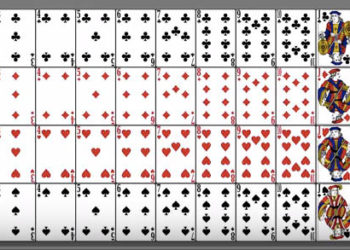A “veridical paradox” is a situation that produces a solution that seems absurd, but is correct nonetheless. The video below shows one such paradox, a mathematical problem named after game show host Monty Hall. On the show Let’s Make a Deal, at the climax of the show, a contestant was given a choice of three boxes/curtains/doors. Behind one was a fabulous prize, behind the other two, a “zonk” or something of little value. After the contestant chose a box, Hall would then reveal what was in one of the other unchosen boxes, showing one of the zonks. He would then ask the contestant whether they wanted to switch their choice to the other remaining box.
According to the math, the contestant should always make the switch. The video below explains why, even though it sounds counterintuitive, this increases your odds (and makes the choice more obvious by switching to a scenario with 100 boxes).
Discussion
7 Thoughts on "Monty Hall and a Veridical Paradox"
I first learnt about this at university and had a blazing (albeit good natured) row with a friend who asserted it couldn’t possibly be true. In the end we settled it by running the ‘game’ 100 times. Never has “I told you so” felt more satisfying!
Why does opening one door not change the problem to which of two doors is the car behind? That is, why does the probability remain 2/3 instead of becoming 1/2?
The Wikipedia page goes into great detail about why switching is favorable:
https://en.wikipedia.org/wiki/Monty_Hall_problem
A short explanation is:
“By opening his door, Monty is saying to the contestant ‘There are two doors you did not choose, and the probability that the prize is behind one of them is 2/3. I’ll help you by using my knowledge of where the prize is to open one of those two doors to show you that it does not hide the prize. You can now take advantage of this additional information. Your choice of door A has a chance of 1 in 3 of being the winner. I have not changed that. But by eliminating door C, I have shown you that the probability that door B hides the prize is 2 in 3.”
Now you’ve done it. You know that you’ve just utterly derailed everybody’s Friday night dinner conversations, right?
What’s next week, the airplane on a conveyer belt question?
Obviously this one will be the follow-up. Totally blew my kid’s mind:
https://offspring.lifehacker.com/read-your-kids-mind-with-this-magic-trick-1836924186
Never could come to agree with the line of thought, the moment Monty opens gate no 2. The probability for both the remaining gates becomes 50%, or alternatively, at the start of the game, the probability of finding a Goat is 2/3 while the car is 1/3 which after opening gate 2 becomes 1/2 each. That’s as straightforward a rationale as it could get
The whole concept relies on the total set of information you have. If you were starting from scratch, it would be a 50:50 chance, but you already know something before that choice comes up. In the video, they do the same problem but with 100 doors. Now try to think in terms of Monty offering you 1,000,000 doors. You pick one door, Monty opens 999,998 other doors, leaving the one you chose and one other door. Do you think it’s more likely that you chose the right door with your pick (1 in 1 million chance) or that the prize is behind the other door (999,999 in 1 million chance)?


